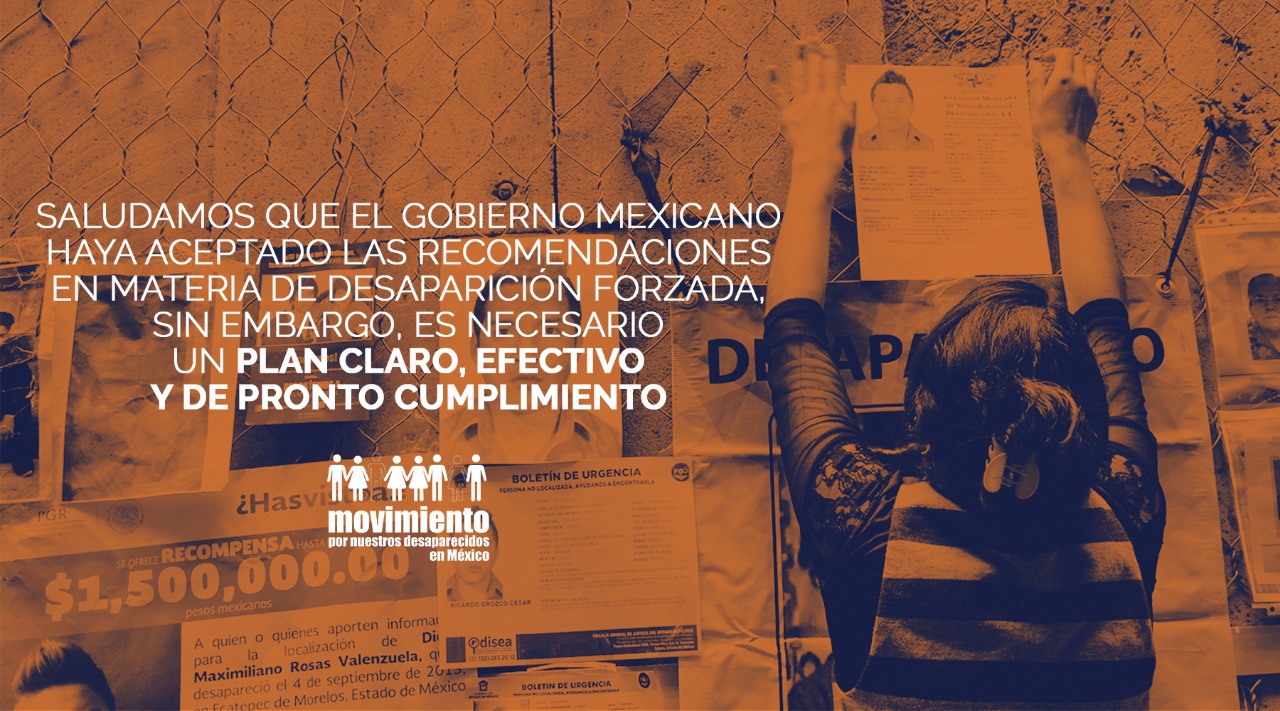10 Years Searching for Justice
On 26th November 2019 Tita Radilla travelled to the Mexican capital to attend an event commemorating the 10 year anniversary of the Inter-American Court of Human Rights’ sentence in the “Radilla Pacheco v Mexico” case. On the 23 November 2009 the Mexican state was condemned for grave human rights violations in which the military was signalled as responsible for the forced dissapearance of Rosendo Radilla, Tita’s father.

 During the Universal Periodic Review of Mexico in November 2018, 38 countries made
During the Universal Periodic Review of Mexico in November 2018, 38 countries made